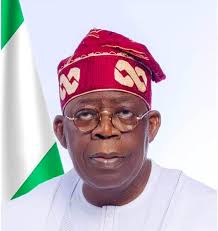In-depth: Tinubu’s 64th Independence Day Broadcast — What He Promised and What It Means
On October 1, 2024, President Bola Ahmed Tinubu addressed the nation to mark Nigeria’s 64th Independence Anniversary. In a speech that mixed frank acknowledgement of current hardships with an assertive outline of reform achievements and future programmes, the President urged patience while promising concrete steps on security, economic recovery, and youth inclusion. 0
Economy: claims of progress and the reform narrative
Tinubu framed his government’s economic policy as a choice between “reform for progress” and “business-as-usual.” He highlighted fiscal moves his administration says it has taken — including clearing a multi-billion-dollar foreign-exchange backlog, reducing the debt-service ratio, and holding foreign reserves at healthy levels — presenting these as early signs that the country is stabilising. These claims were central to his message that the painful transitional adjustments are starting to yield results. 1
Analysts and fact-checkers have since examined some of these figures. Independent verification and continuous monitoring will be needed to judge long-term impact; however the administration’s narrative is clear: fiscal re-ordering and attracting private investment remain top priorities. (See further discussion and fact-checking references below.) 2
Security: reported gains and the unfinished job
Security formed a major plank of the broadcast. President Tinubu told Nigerians that the government has made progress against violent groups — announcing the neutralisation of a number of Boko Haram and bandit commanders and the return of relative calm to many communities that had been displaced. He described these developments as the beginning of a wider effort to restore safe conditions for farming and commerce across affected regions. 3
While the announcement of “hundreds” of commanders neutralised (figures cited in the speech) will need further independent confirmation, the practical effect noted in the address — namely displaced people beginning to return to communities and farms — is a concrete metric to watch as security operations continue. 4
Disaster response and infrastructure checks
The President also addressed recent flooding and natural disasters, announcing a Disaster Relief Fund and ordering integrity tests on the nation’s dams. These measures aim to improve preparedness and response capacity for future emergencies, and they signal an administrative push to combine short-term relief with preventative infrastructure checks. 5
Youth inclusion and jobs: conferences and programmes
Recognising Nigeria’s youthful demographic (more than 60% under age 35), Tinubu announced plans for a 30-day National Youth Conference to involve young Nigerians directly in policy conversations. He also referenced several youth-centred programmes — such as the 3 Million Technical Talents initiative (3MTT), the Nigerian Education Loan Fund (NELFUND), and the proposed Renewed Hope Labour Employment and Empowerment Programme (LEEP) — framed as components of a broader push to expand skills training and job creation. 6
If implemented effectively and coupled with private-sector engagement, these plans could boost employability and entrepreneurship. However, the scale and timeline for delivering millions of jobs will require transparent milestones and continual reporting to convince sceptical observers. 7
Investment and energy transition
The President cited large foreign investment commitments and spoke of energy-transition moves — including expansion of the Compressed Natural Gas (CNG) initiative for mass transit and imminent divestment approvals under the Petroleum Industry Act — as levers to stimulate production, create jobs and stabilise fuel supply chains. These announcements are meant to demonstrate that policy changes are unlocking private-sector activity. 8
Public reaction and expert analysis
Reactions to the speech were mixed: some welcomed the focus on security and youth inclusion; others questioned how quickly reforms would ease the cost-of-living pressures many Nigerians currently face. Fact-checking organisations have also recommended scrutiny of several headline figures to ensure accountability. The speech’s mix of reassurance, programmatic announcements, and claims of measurable gains sets a political test: conversion of policy promises into observable improvements for ordinary households. 9
What to watch next
- Implementation milestones: concrete timelines for LEEP, 3MTT, and the Youth Conference outcomes.
- Security metrics: measurable reductions in attacks, successful resettlement of displaced communities, and improved agricultural return rates.
- Economic indicators: quarterly data on foreign reserve levels, FX stability, job creation figures and the flow of announced investments into actual projects.
Further reading and sources
Read the full broadcast on the official Federal Ministry of Information site and see media transcripts for context. We also link to independent fact-check analyses and mainstream coverage for balanced perspective:
- Full text — Federal Ministry of Information (Official transcript). 10
- Channels TV transcript and coverage. 11
- Dubawa fact-check of major claims. 12
- Tribune — 10 takeaways. 13
Internal links: For related coverage, see our News, Economy and Youth Empowerment sections.
Outbound sources: Federal Ministry of Information, Channels TV, Dubawa and Tribune are cited above for verification and further context.
Editor’s note: This article summarises and analyses the President’s national broadcast. Alphayem will continue tracking the rollout of the policies mentioned and update this piece as new information and official milestones emerge.

